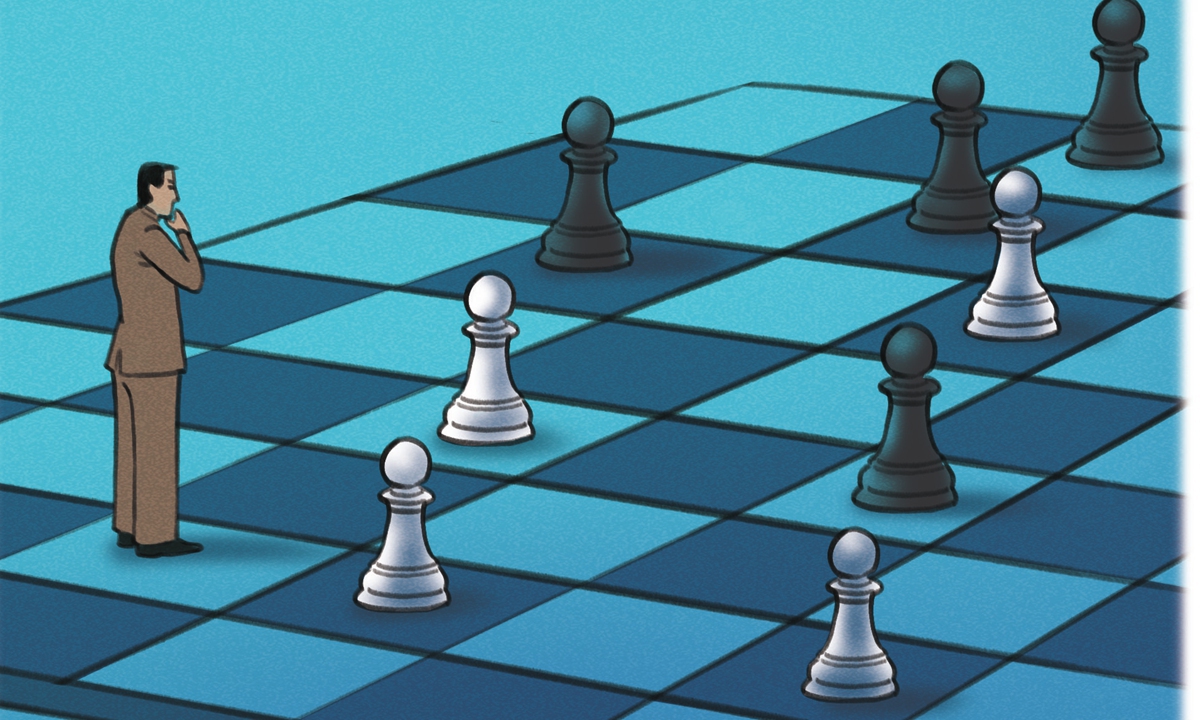
Illustration: Liu Rui/GT
The first phase of the Malabar naval exercises that include the US, Japan, India and Australia kicked off on Tuesday. According to Indian media reports, the purpose of the exercise is to "counter Chinese military and political influence in the region."
As India invited Australia this year, the Malabar exercises are becoming a pillar of the "Asian version of NATO" that the US has been advocating. The Asian NATO would be a US-centered military alliance that serves US hegemonic ambitions with an eye on containing the rise of China. If the US wants to turn the idea into reality, it has to rope in the so-called like-minded partners.
All the four players of the Malabar exercises are also members of QUAD, who the US is trying to turn into founding states of the Asian NATO. In the foreseeable future, the US is likely to draw other regional countries into its military orbit.
The Malabar exercises claim to counter China's influence, but China will not slow its development because of external turbulence. China's influence is determined by its own development level.
It's doubtful whether checking China's rise by QUAD members with their joint exercises in the waters can be realized. However, the risks are increasing that the Indo-Pacific region will become a geopolitical hot spot.
Even Germany wants to get involved in the Indo-Pacific region. Germany is anticipated to join the Australian Navy and patrol the Indian Ocean. Media reports say Berlin wants to manage China's influence in the Indo-Pacific region. When a region has gotten too many external powers involved, the region is bound to face geopolitical rivalry and see more uncertainties.
Rivalry and uncertainties do no good to regional development, and heightening regional tensions will give external powers another excuse to step in, placing the region in a vicious circle.
India is actively promoting such regional geopolitical rivalry that only brings uncertainties. It will eventually realize that its action is a crooked one. By doing so, India will not empower itself as it has always been wishing, but can easily turn itself into a chess piece played by external powers.
Against the current geopolitical context in the Indo-Pacific region, India's purpose of enhancing its ties with the US is simple: countering China. India pins high hopes on strengthening its ties with external powers like the US to impose geopolitical pressure on China in the oceans. But this will only consume India's strength. The US will not become the spokesman of India's interests in the region, and its ultimate aim is to exploit India's interests to serve its own. Disturbance from external powers will complicate India's choices.
A criterion to measure China's strength is that it can peacefully manage the frictions with other countries during the process of its development. It firmly safeguards its interests. The geopolitical games by the four players of the Malabar exercises cannot hinder China's own development.




